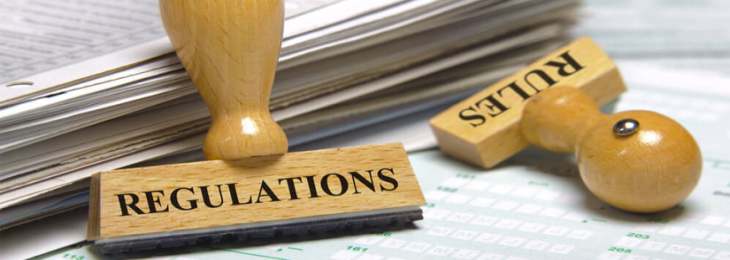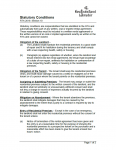Section 10. (1) of the Residential Tenancies Act contains a list of “Statutory Conditions”. Since there are quite a few statutory conditions, covering different topics, rather than explain them all in detail here we will just discuss each item briefly and link to our Help Topics on the various individual topics.
Obligation of the Landlord
Landlords must maintain a rental premises in a good state of repair and fit for habitation, and must comply with any housing, health, and safety laws. There is more information in our Help Topic about Landlord Obligations.
Obligation of the Tenant
Tenants must keep their rental units clean, and repair any damage they cause, or that is caused by their guests. More information can be found in our Help Topic on Tenant Obligations.
Assigning or Subletting Premises
A tenant must have written permission from the landlord to assign or sublet any part of a rental unit. A landlord cannot unreasonably withhold permission to assign or sublet. We have more information in our Help Topic on Subletting / Subleasing / Assigning.
Mitigation on Abandonment
If a rental unit is abandoned by a tenant a landlord is required to minimize their loses as much as possible. A rental unit cannot be considered abandoned unless the tenant has vacated, rent is overdue, and the rental agreement has not been terminated. There is helpful information on this subject in our Help Topic called Abandonment of Rental Unit.
Entry of Premises
Except in an emergency a landlord can only enter a rental unit if they provide proper notice to the tenant. The amount and type of notice required depends on the circumstances. More information about this can be found in our Help Topic on Entry of Premises.
Entry Doors
The locks on a door providing entry to a rental unit cannot be changed except by mutual consent of the landlord and tenant. There is more information available in our Help Topic about Disconnection of Services / Changing of Locks.
Peaceful Enjoyment and Reasonable Privacy
Landlords should not interfere with a tenant’s reasonable privacy or peaceful enjoyment of a rental premises, and tenants should not interfere with the reasonable privacy or peaceful enjoyment of the landlord, or other tenants. We have a Help Topic dedicated to this issue called Peaceful Enjoyment & Reasonable Privacy.
Disconnection of Services
Landlords and tenants are prohibited from disconnecting heat, water, or electrical service to a rental unit during the term of a tenancy except by mutual consent. We have more information available in our Help Topic about Disconnection of Services / Changing of Locks.
Written Rental Agreements and Written Notices of Oral or Implied Agreements
When a landlord and tenant enter into a written rental agreement the agreement must include these statutory conditions, exactly as written in the Residential Tenancies Act. These conditions are included in the Standard Rental Agreement made available by Service NL. If you write your own rental agreement, it’s important that the statutory conditions be included. More information is available in our Help Topic on Rental Agreements.


